ISSSB-International Summer School on Systems Biology
The Systems Biology approach to discover marine life:
from a big eye to a microscopic picture
27-30 October 2025
Biological systems are complex networks of biological entities such as organs, tissues, cells, organelles, macromolecular complexes, and regulatory pathways at a macro scale.
Oceans represent a perfect example of a biological system made of a huge number of interconnected biodiverse systems, both as species and as niches. Understanding how their connections result in its health and equilibrium requires a wide approach, looking at it from all the possible angles.
Systems biology aims to provide a comprehensive view of the biological systems using an interdisciplinary integrated approach from different scientific areas and technological, experimental and informatic skills.
Based on this holistic view, the school aims to provide participants basic and advanced knowledge on Biodiversity, Ecological interactions, Evolutionary Genomics and Omic disciplines, to be used as an integrated approach applied to oceans for EcoEvoDevo studies and Biotech Applications.
 |  | 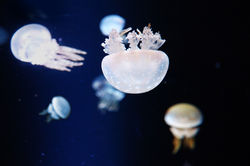 |  |  |  |
|---|---|---|---|---|---|
 | 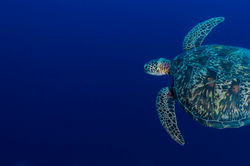 | 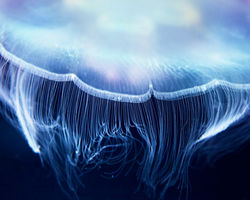 |  |  |  |
 |  |  |  |  |
Teachers
Top international Professors and Researcher
The teachers of the ISSSB-International Summer School on Systems Biology are very expert and top level researcher and professor from a wide variety of disciplines and backgrounds. What unites them is a continuous passion for learning and discovery. Find out who they are.
Teachers
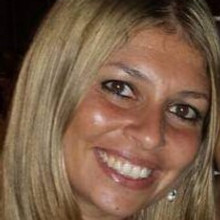
Dr. Angela Sardo
Senior Technologist, Eco-sustainable Marine Biotechnology (BluBio) Department, Stazione Zoologica Anton Dohrn Napoli, Italy
Angela Sardo is a senior Technologist of the Marine Biotechnology Department of the Stazione Zoologica Anton Dohrn (Naples). Her research activity is mainly focused on using of marine microalgae for biotechnological applications. She investigates the exploitation of microalgae as source of high-valuable compounds, and she also studies possible strategies for the bioremediation of water bodies by employing the capability of microalgae to adsorb and/or to incorporate persistent pollutants. Her expertise includes algal growth in enclosed systems on pre-industrial and industrial scales.



Dr. Iole Di Capua
Senior Technologist, Research Infrastructures for Marine Biological Resources (RIMAR) Department, Stazione Zoologica Anton Dohrn Napoli, Italy
Iole Di Capua is a biological oceanographer and senior research technologist at the Marine Organism Taxonomy Core Facility (MOTAx) within the Department of Research Infrastructures for Marine Biological Resources at the Stazione Zoologica Anton Dohrn in Naples, Italy. Her scientific expertise focuses on the alpha and molecular taxonomy of zooplankton, integrating traditional taxonomic methods with advanced molecular tools such as DNA barcoding and metabarcoding to study zooplankton biodiversity and ecology across various marine regions. She is responsible for zooplankton datasets at the Long Term Ecological Research site MareChiara (https://deims.org/0b87459a-da3c-45af-a3e1-cb1508519411), where she also maintains a curated reference library of COI sequences supported by high-definition imagery and voucher specimens. Recognized internationally for her expertise, she serves as the World Register of Marine Species (WoRMS) Editor for Copepoda and has authored several key taxonomic checklists. She plays an active role in international scientific collaboration as a member of the Executive Council of the World Association of Copepodologists (WAC), a key contributor to the SCOR Working Group MetaZooGene (WG157), and a participant in the ICES Working Groups on Integrated Marine Taxonomy (WGIMT) and Zooplankton Ecology (MGZE), as well as the EUROBUS project, which focuses on monitoring the non-indigenous copepod Pseudodiaptomus marinus. Her work is pivotal in bridging classical taxonomy with molecular approaches, supporting long-term marine biodiversity monitoring and contributing to a broader understanding of marine ecosystems at global scale.


Dr. Fabio Crocetta
Senior Researcher, Integrated Marine Ecology (IME) Department, Stazione Zoologica Anton Dohrn Napoli, Italy
Fabio Crocetta is a marine biologist and zoologist whose research focuses on the marine benthic diversity of the northeastern Atlantic, with a particular emphasis on the Mediterranean biota. His main research areas include integrative taxonomy and speciation patterns of the native fauna, as well as faunal and ecological dynamics in marine and transitional environments, including species that colonize anthropogenic substrates or debris. In addition, he investigates changes in biodiversity caused by anthropogenic impacts and the introduction of alien species, with a special attention to their colonization routes using faunal and molecular tools as well as historical ecology. He makes extensive use of citizen science and is actively involved in science communication both in person and via social media. Fabio is author of nearly 200 articles published in indexed journals (with impact factor) and has participated to several research projects and oceanographic expeditions. He currently works as a senior researcher at the Department of Integrated Marine Ecology (Stazione Zoologica Anton Dohrn – Naples), where he continues to follow the research lines in collaboration with Italian and international colleagues.


Dr. Klaas Vandepoele
Group leader in the VIB-UGent Center for Plant Systems Biology and Full Professor, Ghent University, Gand, Belgium
Scientific research in the Vandepoele lab is centred at the intersection of bioinformatics and plant/diatom biology. We are a diverse and multi-disciplinary team comprising early- and senior-career scientists trained in molecular biology, genomics, and (bio)informatics. Through the development and application of complementary techniques, including -omics data integration, network biology, and more recently also machine learning, we study gene functions and context-specific regulatory networks. Klaas Vandepoele is a highly-cited researcher and published >170 peer-reviewed publications (>18,000 citations, H-index 63).


Dr. Luca Ambrosino
Technician, Research Infrastructures for Marine Biological Resources (RIMAR) Department – BAC unit, Stazione Zoologica Anton Dohrn Napoli, Italy
I am a molecular biotechnologist with a PhD in Computational Biology and Bioinformatics obtained from the University of Naples 'Federico II'. I completed my Master’s thesis at CEINGE – Advanced Biotechnology S.c.a.r.l., focusing on the structural characterization of disease-causing mutant enzymes. I then worked at the Institute of Protein Biochemistry (IBP) of the CNR on the structural and functional characterization of extremophile enzymes with biotechnological potential.
I earned my PhD at the Department of Agricultural Sciences of the University of Naples 'Federico II', where I focused on comparative genomics and the molecular evolution of plant species of agronomic interest. At the Institute of Genetics and Biophysics (IGB) of the CNR, I primarily worked on the analysis of long-read sequencing data to investigate the impact of structural and point mutations in human pathology, particularly Acute Lymphoblastic Leukemia (ALL).
As a member of the Bioinformatics, Computational Analysis & Data Management (BAC) unit at the Stazione Zoologica Anton Dohrn, I focused on structural and functional genomics, comparative genomics, and molecular evolution of marine species.


Dr. Lucia Campese
Researcher, Integrative Marine Ecology (IME) Department, Stazione Zoologica Anton Dohrn Napoli, Italy
Lucia Campese is a molecular biologist specializing in marine molecular ecology and meta-omics data analysis. After earning her PhD in a joint program between the Stazione Zoologica Anton Dohrn and the French sequencing center Genoscope, she has focused on the ecology of marine diatoms and the functional dynamics of eukaryotic plankton. She is currently a Fixed-term Researcher at the Stazione Zoologica Anton Dohrn, where she applies programming, data science, and statistical methods to tackle key questions in marine biology.


Prof. Chris Bowler
Director of research, CNRS and Institut de Biologie de l'Ecole Normale Supérieure, Paris, France
Chris Bowler is research director at the CNRS and director of the Plant and Algae Genomics Laboratory at the Institut de biologie de l'École normale supérieure in Paris. He received his PhD from the University of Ghent in Belgium, followed by postdoctoral studies at the Rockefeller University in New York. In 1994 he established his own laboratory working on signaling in plants and marine diatoms at the Stazione Zoologica in Naples, Italy, and in 2003 he took up his current position in Paris. He has been a member of EMBO since 1995, received the CNRS Silver Medal in 2010, ERC Advanced Awards in 2012 and 2018 and the Grand Prix Scientifique de la Fondation Louis D de l'Institut de France in 2015. In 2016-2017 he was a Fellow at the Radcliffe Institute of Advanced Studies at Harvard University, USA. In 2018 he was elected member of the French Academy of Agriculture, and during the academic year 2020-2021 he held the annual chair as Professor in biodiversity and ecosystems at the Collège de France. His main research interest is the understanding of the response of plants and marine diatoms to environmental signals, through functional and comparative genomics. Since 2021 he is the scientific director of the Tara Oceans project to explore the biodiversity, ecology and evolution of plankton in the world's ocean. In 2022 he was nominated President of the Stazione Zoologica Anton Dohrn in Naples.


Prof. Ferdinando Boero
Professor, University of Naples "Federico II"- Chair of the Stazione Zoologica Anton Dohrn Napoli, Italy
Ferdinando Boero, Professor of Zoology. Chair of the Stazione Zoologica Anton Dohrn. Associated with CNR-IAS. Former president of the Dohrn Foundation. Member of the European Marine Board. Vice-president of the Marevivo environmental association, member of the Scientific Council of WWF Italy, and Pro Natura. He has coordinated numerous national and international research projects, has published hundreds of articles, book chapters and books on: Marine Biodiversity and Ecosystem Functioning, Marine Protected Areas, Evolution, Scientific communication, Sustainability. He has conceived the exhibit of the Darwin Dohrn Museum of the Zoological Station Anton Dohrn. Main honors: Grand Medaille Albert 1er pour l'Océanographie of the Institute Océanographique de Paris. Medal of the National Academy of Sciences for the Class of Physical and Natural Sciences Golden Trident.


Dr. Domenico D'Alelio
Senior Researcher, Integrative Marine Ecology (IME) Department, Stazione Zoologica Anton Dohrn Napoli, Italy
Domenico D'Alelio main interest is ecology and evolution of marine plankton. His scientific production is multidisciplinary and goes from the biology and evolution of aquatic microorganisms to community ecology, with a specific focus on food webs and dynamics of socio-ecological systems. He is involved in several research projects, both basic ones, pertaining to the exploration of the biological complexity of living beings, and applied ones, pertaining to the management of marine resources. Attracted by the interaction between nature and society, he disseminate science by means of science writing and music.


Dr. Juan Pascual-Anaya
Senior Researcher,
Department of Animal Biology, Faculty of Science, Malaga University, Malaga, Spain
Juan Pascual-Anaya is an evolutionary developmental biologist whose research focuses on the genomic mechanisms underlying the origin of morphological novelties in vertebrates. He earned his PhD in Genetics in 2010 from the University of Barcelona, where he studied the evolution of Hox clusters in cephalochordates. He then moved to Japan to join Prof. Shigeru Kuratani’s laboratory at the RIKEN Center for Developmental Biology, where he became a permanent Research Scientist in 2015. During his time in Japan, he developed expertise in comparative genomics, transcriptomics, and vertebrate embryology, with a particular focus on jawless vertebrates such as lampreys and hagfish. In 2021, he started his own group at the University of Málaga, in Spain, as a Beatriz Galindo Senior Researcher.
His current research aims to reconstruct the ancestral genome architecture of vertebrates and to investigate the evolutionary origin of key developmental systems. By integrating genome sequencing, transcriptomics, functional genomics and in situ hybridization in non-model organisms, his work explores how genome evolution and gene regulation have shaped novel cell types and tissues during vertebrate evolution. Currently, he is particularly interested in understanding the emergence of hematopoietic stem cells and the evolutionary history of the hemogenic endothelium as a study system to answer these questions. His group also contributes to improving genomic resources for cyclostomes, enabling new insights into vertebrate origins.

Dr. Giacinto De Vivo
Postdoctoral researcher, Biology and Evolution of Marine Organisms (BEOM) Department, Stazione Zoologica Anton Dohrn Napoli (Italy)
Giacinto is a researcher specialized in phylogenetics and protein evolution. He earned his PhD in Life Sciences at the Stazione Zoologica Anton Dohrn, where he studied the evolution of opsins, the key genes involved in vision, in deep-sea octopods. His work also extended to other taxa using genome and metaomics mining to trace opsin diversity and function. He applied a range of methods including BLAST searches, ortholog inference, protein annotation, selection analyses, and gene and species tree reconciliation. He is currently investigating microRNA evolution in the retinas of deep-sea octopods.


Dr. Periklis Paganos
Postdoctoral researcher, Marine Biological Laboratory (MBL), Woods Hole, USA
Periklis Paganos is an evolutionary developmental biologist, and his research is focused on understanding how complex animal cell types and organs evolved. To answer his scientific questions, he is using echinoderms, primarily sea urchins and sea stars, that, as non-chordate deuterostomes, allow for large-scale meaningful comparisons across metazoans. He combines state-of-the-art molecular biology approaches, such as single-cell/nucleus transcriptomics with high-resolution light and electron microscopy, to define the cell-type molecular and morphological signatures and to compare cell-type-specific gene regulatory networks across animals. He did his PhD in the Arnone lab at Stazione Zoologica Anton Dohrn, Italy, as a Marie Curie ITN early stage researcher, and his thesis was on the evolution of neuronal and pancreatic cell types in the pre-metamorphic sea urchin larva. He then did a 2-year Postdoc in the Arnone lab at Stazione Zoologica Anton Dohrn, Italy, working on the identification of the post-metamorphic cell type and the photoreceptor system repertoire in the sea urchin juvenile. Since 2023 and until May 2025, he was a Postdoctoral researcher in the Swartz lab at the Marine Biological Laboratory, USA, where he studied the evolution of the ovarian cell types and neuroendocrine systems involved in the establishment of the reproductive potential in adult sea stars.
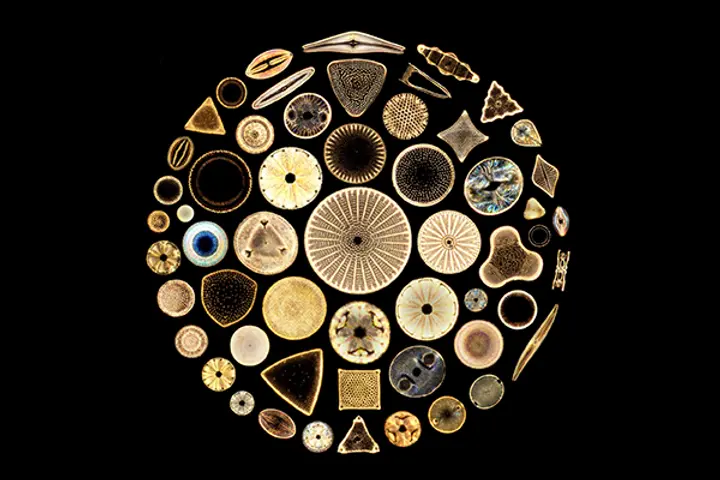

Dr. Giovanna Romano
Senior researcher, Eco-sustainable Marine Biotechnology (BluBio) Department, Stazione Zoologica Anton Dohrn Napoli, Italy
Dr. Romano is senior researcher at the Stazione Zoologica Anton Dohrn (Italy). She is interested in the identification and exploitation of diatom-derived compounds for the development of new products for pharmaceutical, cosmeceutical and nutraceutical applications. She is also interested in studying pathways involved in the biosynthesis of valuable molecules. Dr. Romano is partner in the SZN-CNR spin-off company BioSEArch srl (https://www.biosearchsrl.com/).


Dr. Monia Teresa Russo
Researcher, Eco-sustainable Marine Biotechnology (BluBio) Department, Stazione Zoologica Anton Dohrn Napoli, Italy
Monia T. Russo obtained her PhD in Molecular Genetics of Development and Differentiation at the SZN in Naples in 2005, on a thesis on gene regulatory mechanisms underlying basal chordate embryo development. In 2008 she carried out postdoctoral research at Ceinge - Biotecnologie Avanzate in Naples, studying the role of genes involved in the control of cell proliferation using mouse and human cell model systems. These experiences allowed her to master various molecular biology techniques, a number of genetic transformation methods and several mutagenesis approaches in different model organisms, all based on the establishment of robust and reliable culture protocols. In 2010, she started to work on diatoms at the SZN developing molecular tools for the genetic manipulation of diatoms. Using Phaeodactylum tricornutum as a reference molecular model, she established the nuclear transformation of the ecologically relevant diatom genus Pseudo-nitzschia and contributed to its promotion as a model system for functional studies. Her current research aims to address fundamental ecological questions, such as control of cell growth, and to improve strains for the production of bioactive compounds through gene gain and loss of function using genetic engineering and genome editing tools.


Dr. Gerardo Della Sala
Senior Researcher, Eco-sustainable Marine Biotechnology (BluBio) Department, Stazione Zoologica Anton Dohrn Napoli, Italy
